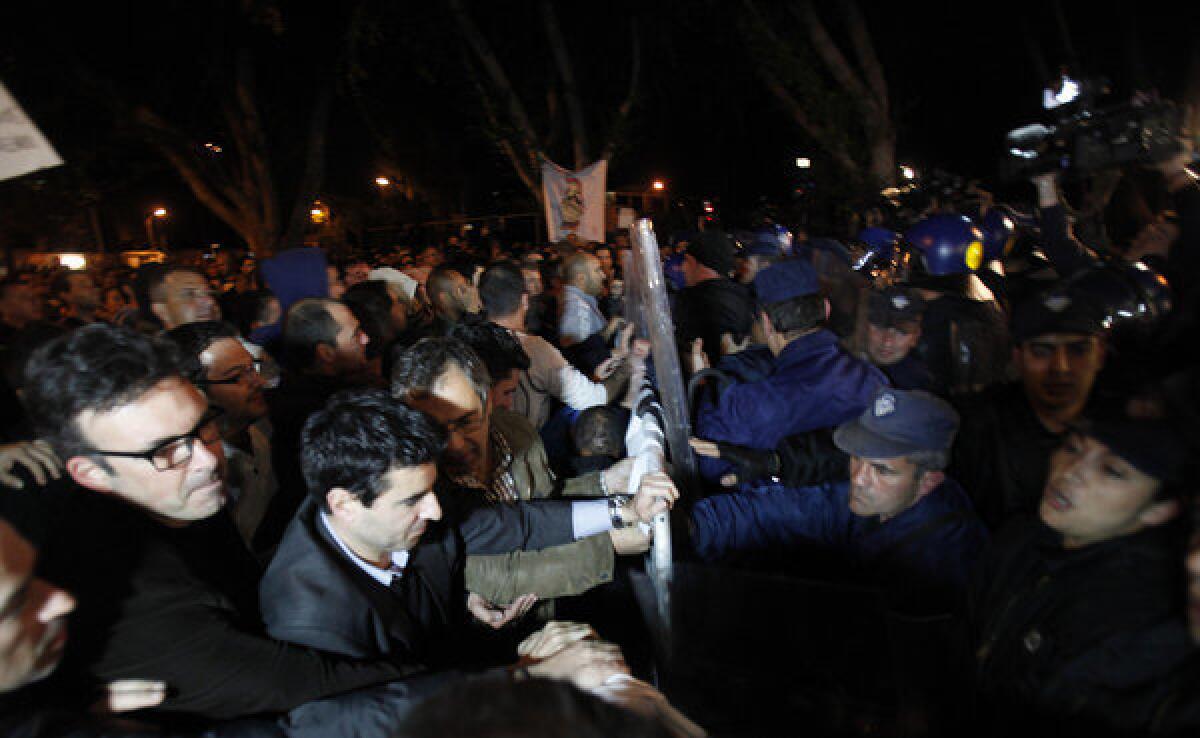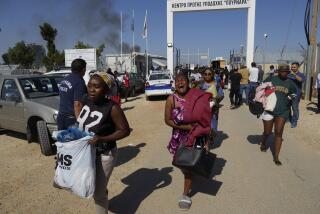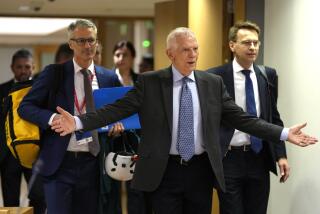Cyprus faces Monday deadline to find $7.5 billion

ATHENS -- The clock began ticking for Cyprus on Thursday when the European Central Bank warned the beleaguered country that it had until Monday to find $7.5 billion needed to qualify for a financial bailout.
The stern ultimatum that the European Central Bank would pull the plug on vital low-cost funding of Cyprus banks sent lawmakers in the tiny island republic scrambling to stitch up a new bailout plan in exchange for $13 billion in rescue loans from Eurozone partners and the International Monetary Fund.
In a bold brushoff that stunned many and kept banks shuttered all week, Cyprus this week rejected a European bailout deal that called for levies of up to 10% on bank deposits.
Without external aid, Cyprus could slip into default within days, raising the specter not only of its exit from the 17-nation bloc that uses the euro currency, but also the outbreak of a crisis that could imperil other troubled economies in Europe.
Cyprus is “definitely a systemic risk, and the unrest of the last couple of days has proved that, unfortunately,” Dutch Finance Minister Jeroen Dijsselbloem, head of the Eurozone caucus, said in the European Parliament Thursday.
Details of a new plan remain unclear. Still, state news media in Nicosia, the capital, reported that the government was set to create a special solidarity fund that would bundle state assets, including the country’s pension funds and the Orthodox church’s riches, as a basis for an emergency bond issue. Troubled banks would be rigorously restructured, the reports said, and some form of tax would be levied on bank accounts.
Government officials were due to review the revised plan, or “ Plan B”, before sending it to the nation’s 56-seat legislature for a vote, possibly late Thursday. A retinue of officials led by Finance Minister Michalis Sarris were in Moscow trying to win financial assistance from the Kremlin, a traditional ally and trade partner.
More than 30,000 Russians live in Cyprus, long considered a money-laundering hub for rich Russians whom the Kremlin has been pursuing for allegedly evading billions of dollars in taxes. About a third of the island’s $88 billion in deposits belong to Russians.
As of late Thursday, Moscow had not announced any amount of financial support for Cyprus. Instead, Russian Prime Minister Dmitry Medvedev remained miffed over Nicosia’s initial plan to finance its banks through a surprise tax on deposits, calling it “an act of confiscation.”
In the streets of Nicosia, meantime, cash points were running out, spurring fresh spasms of panic and shortages of food and medical supplies. Indicative of the worsening crisis, the government barred the use of checks and credit cards and placed a $336 limit on daily cash withdrawals from ATMs.
“Time is up — we want our cash,” said Maria Melitou, an accountant. “Our friends in Europe brought us to this point. We expected more.”
ALSO:
Jailed Kurdish leader calls for truce with Turkey
Hackers who hit South Korea used an old tactic
India passes rape law that sets age of consent at 18
More to Read
Sign up for Essential California
The most important California stories and recommendations in your inbox every morning.
You may occasionally receive promotional content from the Los Angeles Times.










